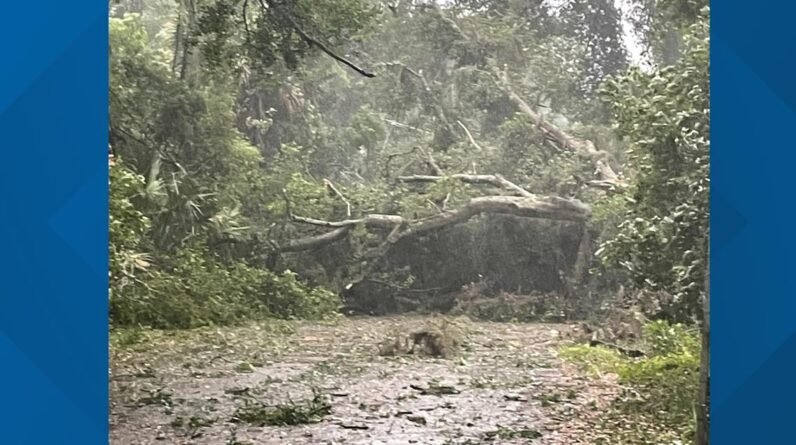
GAINESVILLE, Fla. – Traffic stops are the most common police interactions in the United States, but they can also be among the most dangerous, with risks for both law enforcement officers and civilians.
A recent incident in Camden County, where a traffic stop escalated into a deadly shooting, has raised questions about the need for a safer approach to traffic stops. Civil rights activists are now pondering whether a different approach at the beginning of such stops could prevent such tragic outcomes.
A UF professor hopes a smartphone app he and his students developed will make a difference and save lives for both law enforcement officers and motorists.
Law enforcement officers often emphasize that there is no such thing as a routine traffic stop, as even seemingly minor violations can escalate quickly, raising anxiety levels for both drivers and officers. The consequences can be deadly for either party involved.
The October 16 incident in along Interstate 95 in Kingsland, Georgia, where a Camden County sheriff’s deputy shot and killed 53-year-old Leonard Cure, who had recently been exonerated from Florida state prison, underscores the risks of traffic stops. Leonard Cure, pulled over for speeding, ended up in a deadly brawl with the deputy, Sgt. Buck Aldridge, who claimed he fired a single shot in self-defense after Cure put him in a headlock. The Georgia Bureau of Investigation is looking into the case, which garnered national attention and has been categorized as racially motivated by some. Cure’s family is demanding justice and charges for Aldridge.
In response to these continued concerns, Dr. Juan Gilbert, an engineering professor at the University of Florida, has developed an app called Virtual Traffic Stop. This innovative solution aims to de-escalate tensions during traffic stops and reduce nervousness on both sides, ultimately creating a safer environment for all parties involved. The app is designed to be inclusive, making it particularly beneficial for individuals who are hearing impaired or deaf.
“It began with my students, actually,” Gilbert told News4JAX from his office on campus. “One day I was in the lab and talking to my students, and they were a little frustrated with interactions between law enforcement and drivers. I said, ‘Well, let’s do something about that.’”
Gilbert has already created what he calls the most secure way to vote and in his spare time rolled out the app called Virtual Traffic Stop. President Joe Biden recently honored him with the National Medal of Technology and Innovation at the White House.
“The idea from a driver’s perspective is that I can de-escalate tensions between law enforcement and myself, bring down the nervousness that a driver may have,” he said. “The idea is that by having the virtual traffic stop, we can have an icebreaker.”
During a simulated traffic stop on the University of Florida campus, we put the app to the test. Upon being pulled over and coming to a complete stop, the driver can start a video call with the officer using the app, like FaceTime or Zoom. This not only provides an opportunity for face-to-face communication but also allows the option to include a third party, such as a family member or spouse. The traffic stop worked without a hitch and the officer was able to speak to us before approaching the car for our license and registration. This was only a simulation, but the process took less than five minutes from start to finish.
“I think this is an opportunity for us to work with our faculty as a pilot project and see where it takes us,” said Major Bart Knowles, with the University of Florida Police Department. He said officers had their hand in giving feedback on what they liked and what they questioned in the app.
Students at the University of Florida were generally optimistic of the Virtual Traffic Stop app. Some said they believe it can help reduce anxiety during traffic stops, especially for individuals from marginalized communities who may be concerned about bias or excessive force.
“As a person of color, in the past, there’s been a lot of issues with police brutality and stuff. So that’s definitely an issue,” said Naman Goyal, a UF student.
“I think it reduces any unnecessary anxieties that might arise just from the tension of having been pulled over,” student Jasmine Smith said.
“I’ve never gotten pulled over but I feel like that would help,” added student Maria Hurtado.
Traffic stops are frequent encounters in the United States, with over 50,000 drivers pulled over daily. According to Stanford researchers, these stops are the most common police interactions but can also be the most dangerous for officers and civilians. Over the past six years, over 800 people have been killed after being pulled over in the United States, according to the Mapping Police Violence database. Meanwhile, officers are at increased risk of being shot, hit by passing vehicles, or dragged by cars.
While the Virtual Traffic Stop app has garnered support, Sheriff Michelle Cook of Clay County, Florida, raises concerns about potential drawbacks, such as losing the personal touch of an officer approaching a vehicle during a traffic stop. She highlights the significance of the information gleaned from in-person interactions.
“I’d like to see it in action,” Cook said after we showed her the app. “You do lose quite a bit of that personal touch when you’re not going up and talking to somebody at the window. you walk up to a window, and you smell things, you see things, utterances are made, I’ve walked up to a window on a traffic stop and somebody confessed to a felony crime just prior – so you may lose some of that if you’re doing an initial contact via an app.”
“There’s always apprehension when you stop a vehicle,” said Tom Hackney, a long-time detective and former director of the Jacksonville Sheriff’s Office. “So, the first thing that happens is that license plate in the car that you’re stopping is called in, and you’re getting some information feedback immediately on whether that car is stolen or wanted.”
Hackney said there’s a lot to be gained with in-person face-to-face interactions during a traffic stop, but he believes in some instances, the app may cut down on tension between and officer and those in the stopped vehicle.
“So as you’re coming up to the car, and you’re making visual observations, the officer is going to get to touch the car,” he said.
Civil rights attorney Ben Crump, who represents Leonard Cure’s family and has been the attorney for many other families in high-profile police cases, believes the Virtual Traffic Stop app could save lives. Crump asserts that such technology could prevent unnecessary confrontations, especially during minor infractions, where both drivers and officers could safely reach a resolution.
“I think it is innovative it is groundbreaking,” he told News4JAX. “When we think about Leonard (Cure), maybe this app could have saved his life, the fact that it’s a speeding ticket, where here’s your fine, you don’t have to get out of the car, you don’t have to be subjected to the bias or the excessive force, and you can survive the stop, you can get home safely, the officer could get home safely, and justice can be administered. That is some technology worth investing in. If we can have that type of technology? Will we preserve life in that keep creating all these hashtags, where black people and brown people are killed? And highly questionable circumstances?”
The Virtual Traffic Stop app is currently in use with the University of Florida police, with plans to expand its adoption to the Gainesville police department. While the current funding is an endowment, agencies interested in using the app for their jurisdictions would cover the software costs, allowing drivers to use it for free. The development of this app opens the door to a potential safer approach to traffic stops, reducing risks for everyone involved. It is currently free and available in Apple and Google app stores. More information is available at https://www.virtualtrafficstop.com.
Copyright 2023 by WJXT News4JAX – All rights reserved.







